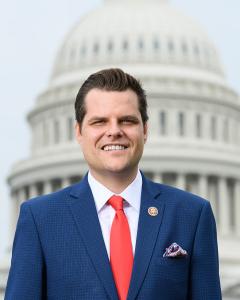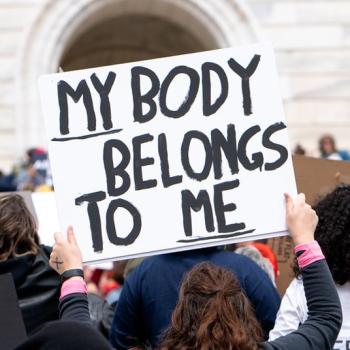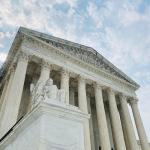
When a member of Congress steps out of line, goes against the will of the party, the punishment for such action is known as “being primaried.” The current holder of a political office must face a member of his own party in the preliminary election known as the primary. This candidate is more aligned to the right wing of the party. The threat of “being primaried” looms large in Republican circles.
For instance, Newt Gingrich has slammed the eight Republicans who voted to oust Kevin McCarthy from the post of House Speaker as “traitors.” No one evokes the call for being ‘primaried’ as much as Matt Gaetz.
“They are traitors,” Gingrich, a former House Speaker, said during an appearance on Fox News.
“All eight of them should in fact be primaried. They should all be driven out of pu.lic life. What they did was to go to the other team to cause total chaos.”
Liz Cheney was purged from the Republican Party. She was “primaried.”
On January 6, the same day as the deadly riot at the U.S. Capitol, Trump told his supporters to “primary the hell” out of conservative lawmakers who did not object to the Electoral College certification.
The threat scares some incumbents into early retirement – a kind of voluntary exile. Others bravely face the primary only to lose to a candidate more aligned to the party line.
The message: No dissent allowed.
Republicans Jaime Herrera Beutler, Liz Cheney, Tom Rice, and Peter Meijer were primaried and lost in 2022.
Anthony Gonzalez, John Katko, Adam Kinzinger, and Fred Upton retired and did not run for re-election in 2022.
Dan Newhouse and David Valadao voted to impeach Donald Trump and they were the only ones to be re-elected.
No wonder members of Congress tiptoe through the halls of Congress burnishing their right-wing credentials and pumping up their Trump support credentials. As Richard C. Barton wrote, “Congress is polarized. Fear of being ‘primaried’ is one reason.”
The high tribunal of Republican leaders who are endowed with the power to stamp the label of “primaried” also dub the dissenters as RINO’s. The threat is real. And often becomes reality.
The attempts to eliminate dissent fall apart sooner or later. Control, conformity, authoritarianism, bullying, intimidation, punishment never silences all the voices of dissent. Even the powerless, the weak, and the poor find ways to dissent, and all those voices will not be silenced forever. James C. Scott, in Weapons of the Weak, outlines the hundreds of sneaky ways that the weak subvert the attempts to control and intimidate.
“Primaried: Political Excommunication
| The idea of “being primaried” has a religious concept behind it: excommunication. Christians excommunicated from the church generally had deep convictions and are more interesting than politicians being primaried, but the result is the same. Excommunication is the act of banishing a member of a church from the communion of believers and the privileges of the church |
The Catholic Church excommunicated Henry VIII; the result – the Anglicans. They excommunicated Martin Luther; the result – Lutherans and the Protestant Reformation.
The power that attempts to eliminate dissent has a bloody history. English monarchs and clergy found a more permanent solution to dissent. Instead of excommunication, beheadings. “Off with their heads.” This is an idea gaining new currency in the USA. X-President Trump has called for General Milley to be executed. Marjorie Taylor Greene previously called for the execution of members of the FBI. The former director of the CIA has called for Senator Tuberville to “be removed from the human race.” The idea of killing one’s enemies has never left the human imagination.
In historical context, being primaried has become the 21st century political version of excommunication and beheading.
Political Dissent Now Counts as Treason
The act of treason that brings on the shout, “Primary them,” is dissent from the party line. It is equally clear that politics, then and now, characteristically traffics in established truth about which there is general agreement in a particular political party or church body. Whether it is Matt Gaetz demanding the “head” of McCarthy for not giving in to the demands of the hard right or Al Mohler insisting that Saddleback Church be excommunicated from the SBC for ordaining women, the genre is the same: exclusion, censure, removal.
Dissenters have never had an easy time of it. From Old Testament prophets to anti-war protestors in the 1960’s to Republicans insisting Trump is unfit to be president, dissent has put its brand on democracy and faith.
A dissenter (from the Latin dissentire, “to disagree”) is one who disagrees in opinion, belief and other matters. English Dissenters opposed state interference in religious matters, and founded their own churches, educational establishments and communities. I am descended from Baptist and Anabaptist dissenters. There’s a Hall of Fame for Anabaptist/Baptist dissenters. I call them “saints.”
Nothing Says Dissent Like Baptist
Bill Leonard, in Baptist Ways, says, “Debates and divisions seem inescapable, perhaps integral, to Baptist life.” That statement is worthy of being a text for dissent. I think Leonard’s title is perfect. Christians were first called the “people of the way.” Baptists are Christians that are hard to put into any one formulation and are better referred to as having “ways” of being faithful to Jesus.
There have been attempts to have the Baptist “way,” but reading the list of Baptist denominations in North America demonstrates the futility of such efforts. There will be dissent.
Dissent once went with Baptist as a badge of honor. What has happened to the dissenters among the Baptists?
Those who wield the power to silence dissent all act in the same authoritarian, self-righteous ways of certainty. There’s the tendency of Southern Baptists to marginalize dissent from doctrinal positions by rendering it “unbiblical” and unchristian. There’s the tendency of politicians to cast out anti-war protestors as “anti-patriotic.”
Dissent becomes an oxymoron under a collection of weak-minded bullies who get their way with threats and intimidation. Rep. Diaz-Balart, facing pressure from Jim Jordan in the vote for Speaker of the House told reporters “That millisecond when anybody tries to intimidate me” was the moment “I no longer have the flexibility.” He added, “If anybody’s trying to get my vote, the last thing you want to do is try to intimidate or pressure me because then I close out entirely.”
The power presently in charge of the Republican Party and the SBC have forgotten that their movements were forged in dissent. Crisis rhetoric was indispensable to the rise of the right wing in the 1980’s and 1990’s. A dramatic disruption of the status quo was necessary for the dissenters to gain an audience, attract wider attention, and recruit followers. “The diatribe is a decisive mark of protest.”
One may even venture the thought that we are witnessing the last remnants of recognizably democratic dissent in the Republican Party. David Brooks calls it “the rotting of the Republican mind.”
Dissent is the Baptist and democratic foil to “being primaried. Dale Martin Smith, in Poets Beyond the Barricade reminds that “American public culture requires the social possibilities expressed through civil activism and dissent.”
Dissent renews possibilities that have previously been closed. Dissent keeps politics and religion from the sin of boredom. Dissent nourishes the spirit of faith and democracy. Democracy requires dissent.
Robert L. Ivie, in “Enabling Democratic Dissent,” has a passage worth quoting at length says, “A healthy democracy encourages the rhetorical act of dissent as a right of free speech and an antidote to political repression. Dissent is the balancing point between stability and change, cleavage and consensus, politics and revolution, life, and decay. It should be tolerated, not censured by authorities, punished by law, or otherwise suppressed. Democracy cannot be true to the principle of self-governance when dissent is stifled, and public opinion is manipulated by ruling elites. When dissent is suppressed, especially in times of crisis, democracy itself is lost and the people are turned against themselves.”
Contention and disagreement make for a healthy democracy, and strong democracy requires citizens with thick skins. Dissent serves only one master: Truth. Vaclav Havel put it, “In other words, serving truth consistently, purposefully and articulately, and organizing this service. This is only natural, after all: if living within the truth is an elementary starting point for every attempt made by people to oppose the alienating pressure of the system …. it is difficult to imagine that even manifest ‘dissent’ could have any other basis than the service of truth, the truthful life and the attempt to make room for the genuine aims of life.”
Cass R. Sunstein argues in Why Societies Need Dissent that dissent, openness, and diversity create prosperity. Unjustified extremism often rears its ugly hear from the refusal to hear dissenting voices. Allowing people to speak out, disagree, propose alternative solutions are positive ways of maintaining faith and democracy.
The current fad of “primarying” dissenters needs to exit stage right.
Churches, political parties, communities all need dissenters. They are the spice of our free culture. Dissenters may be silenced, arrested, put in solitary confinement, and threatened with death. The question of the true dissenter at that point: “Then what will you do to me?”
Lift your voices and sing, shout, and demand the sanctity of dissenters.
















